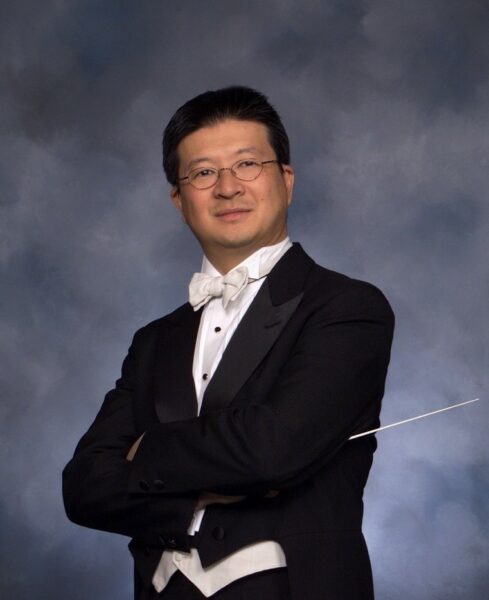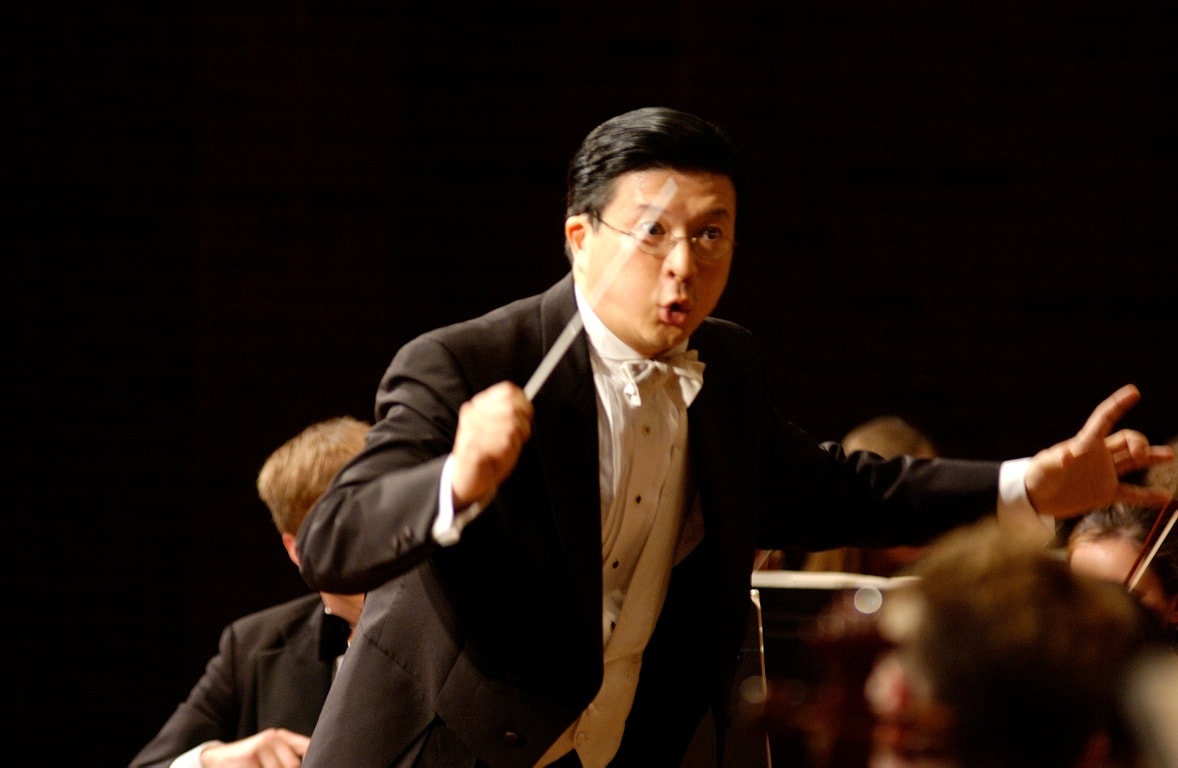/ News Posts / “Making Memorable Musical Experiences”
“Making Memorable Musical Experiences”
An Interview with 2022 All-National Honor Ensemble Symphony Orchestra Conductor Nobuyoshi Yasuda
Nobuyoshi Yasuda also conducted the 2020 All-National Honor Ensembles Symphony Orchestra, which performed virtually in January 2021.
The 2022 All-National Honor Ensembles (ANHE) Symphony Orchestra will rehearse and perform November 3–6, in National Harbor, Maryland, with five other All-National Honor Ensembles. Nobuyoshi Yasuda will lead the Symphony Orchestra. Learn more about Nobuyoshi Yasuda here. Here, Yasuda shares some of his thoughts on music education, conducting, and the upcoming ANHE Symphony Orchestra.
When did you first fall in love with music?
My parents told me that as a baby I always loved sound and music. There is a memory that everyday I was listening to my favorite song, about three minutes long—listening over and over again with the 45-speed record player. One day my mother was curious how many times I listened to it. After she counted one hundred times, I still demanded her to play it. Can you imagine that my mother had to drop the needle on the record every time so I could listen to the song?
What inspired you to become a conductor? Describe the process in getting to where you are today.
When I entered a college, I joined the university orchestra. Immediately I was blown away by the power of sound from the orchestra. As a violin player ’til then, I played only violin solo pieces and string ensembles, but never played in a symphony orchestra.
I still remember the chill of playing Tchaikovsky Symphony No. 5, powerful sound of brass instruments, colorful tone of woodwinds. Since then, my desire to become a conductor started to grow. And I picked up an orchestra score of “TheRite of Spring” by Stravinsky and began to study the score with my hope that someday I would conduct this piece! Then the dream came true in the spring of 2001.
What are some of the greatest accomplishments, and challenges, you face as a conductor of a large ensemble?
In spring semester, 2001, I chose “The Rite of Spring” for the repertoire for the spring concert. I still clearly remember the facial expressions of my students in the university orchestra at the first rehearsal when I distributed the parts of “The Rite of Spring”; succession of irregular meters, 5/8, followed by, 9/8, 5/8, 7/8, even 3/16, and 5/16. They all looked at me with feeling of doubt and fear: You must be kidding that you expect us to play this.
Then, we began to read the section of continuous irregular meters. I let them play only one measure, and I asked, “Is there any problem with that?” They replied, “No.” Then we play the second measure, and I asked again, “Is there any problem with that?” Again, they replied, “No.” We went on and at the end of the rehearsal, they played through the entire ending part. I saw radiance of excitement and confidence in their eyes. Two months later, they gave an outstanding performance of “The Rite of Spring.”
What factors do you consider when programming music for a concert or honor ensemble? What are some of your favorite pieces of repertoire?
Playing music is an outlet of our feeling. And master pieces provide us extraordinary musical experiences. Upon playing music by Beethoven, we must face up to Beethoven with his strong will to overcome obstacles. Tone poems by Richard Strauss are very imaginative musical story-telling that take us on a fantastic musical journey.
What excites you the most about the ANHE program? What do you hope your young musicians who attend will take away from their experience?
It is always my pleasure to make music with aspiring young musicians. They all come with one reason—they love music, and so do I. I am looking forward to making great musical experiences with them.
What advice would you share with young aspiring musicians?
I feel very lucky that music is in my life. Great music often touched my soul and influenced my thoughts. Through playing music, I met so many wonderful new friends. I believe the experience of playing in the All-National Honor Ensembles will give you memorable musical experiences. I am looking forward to meeting new friends and making a great musical experience together.
Why do you think music education is so important for all students?
Listening to music is self-thinking, and playing music is an outlet of feeling. I believe music stimulates imagination and nurtures thoughts. In our modern society with advanced technology, people are seldom challenged to think and create because A. I. (artificial intelligence) can do many things for us. What separates human and A. I. is our feeling and imagination; It is wonderful to feel happy and to have dreams. Let’s express our feeling and embark on great musical journeys.
Did this blog spur new ideas for your music program? Share them on Amplify! Interested in reprinting this article? Please review the reprint guidelines.
The National Association for Music Education (NAfME) provides a number of forums for the sharing of information and opinion, including blogs and postings on our website, articles and columns in our magazines and journals, and postings to our Amplify member portal. Unless specifically noted, the views expressed in these media do not necessarily represent the policy or views of the Association, its officers, or its employees.
Original interview published March 13, 2020. © National Association for Music Education (NAfME.org)
Published Date
March 13, 2020
Category
- Uncategorized
Copyright
March 13, 2020. © National Association for Music Education (NAfME.org)







